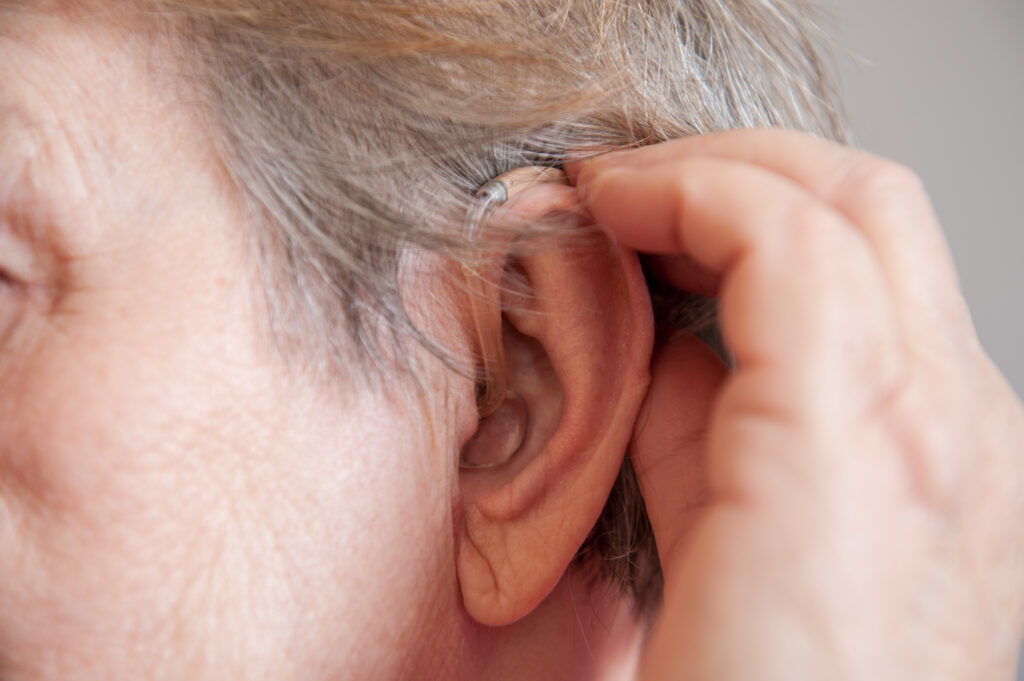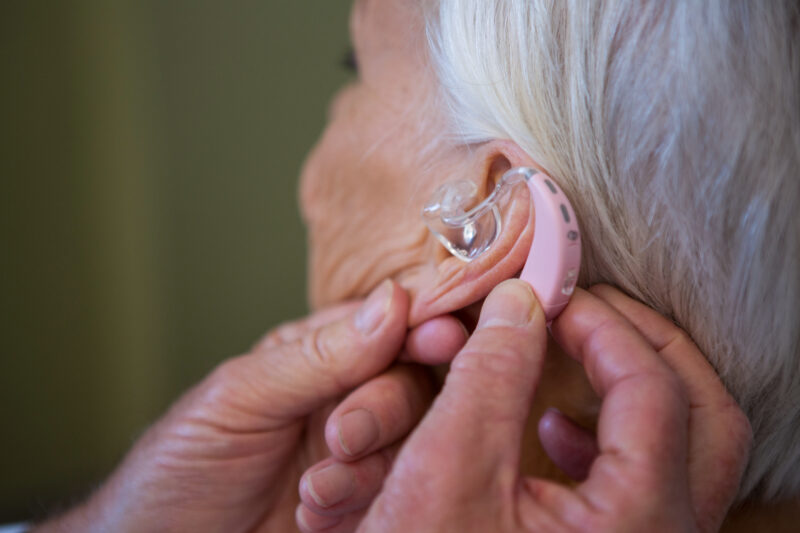With the price for a single hearing aid ranging from hundreds to thousands of dollars and the requirement to have insurance in order to see an audiologist, it’s hard for many seniors to afford better hearing. However, the Food and Drug Administration (FDA) is in the process of regulating and approving over the counter hearing devices (OTC), which will likely be more affordable and accessible to consumers in stores, without a prescription.

Who Can Safely Use Over the Counter Hearing Aids?
In general, OTC hearing aids will be safe for adults with mild to moderate hearing loss who have ruled out underlying health issues like diabetes, cardiovascular disease or chronic kidney disease; all of which can cause hearing problems. This is why anyone purchasing OTC products should first visit a primary care or hearing health professional. Some audiology associations are concerned that purchasers may further damage their hearing by turning up the volume too high, or that customers who don’t have a good experience with OTC hearing aids will give up on hearing aids altogether. However, the Hearing Loss Association of America (HLAA) openly supports a regulated market for over the counter hearing devices, stating that, “We believe that OTC hearing devices will provide accessible and affordable hearing health care to millions of people who otherwise might not seek help. Or, for those who have sought help, OTC hearing devices could provide an affordable option.”
What Symptoms Signify Mild to Moderate Hearing Loss?
If you or a loved one experiences the following hearing loss symptoms, you may be a good candidate for an OTC hearing aid:
- You often ask friends to repeat what they said.
- You confuse high-frequency consonants or syllables, so you hear words like “school” as “pool.“
- You can’t hear what someone says when they whisper.
- You lean in closer to hear someone speak or can no longer have conversations between the living room and kitchen.

Are OTC Hearing Aids Available Now?
You may have seen “over the counter” hearing products available online, and some manufacturers even claim to be “FDA cleared” or “FDA registered,” but they are not FDA approved. In fact, the FDA sent a letter in 2018 to hearing aid manufacturers stating that they cannot label their products as OTC until final FDA regulations are published. In order to become FDA-approved and available for consumer purchase, the FDA must first publish proposed regulations, then allow for a 60-day public comment period. After that, they have 180 days to publish final regulations. The deadline for the FDA to release these regulations was originally August 18, 2020, but that was delayed due to the COVID-19 pandemic.
The most recent action taken to get the ball rolling on OTC hearing devices was in November 2020, when senators Elizabeth Warren (D-Mass) and Chuck Grassley (R-Iowa) issued a press release urging the FDA to initiate its rules “without further delay.” It’s now listed on the Spring 2021 Unified Agenda for the Office of Management and Budget (OMB) to address this year, and the approval process should take about a year. Long story short, you’ll need to wait until close to summer of 2022 to purchase OTC hearing aids at your local pharmacy.

